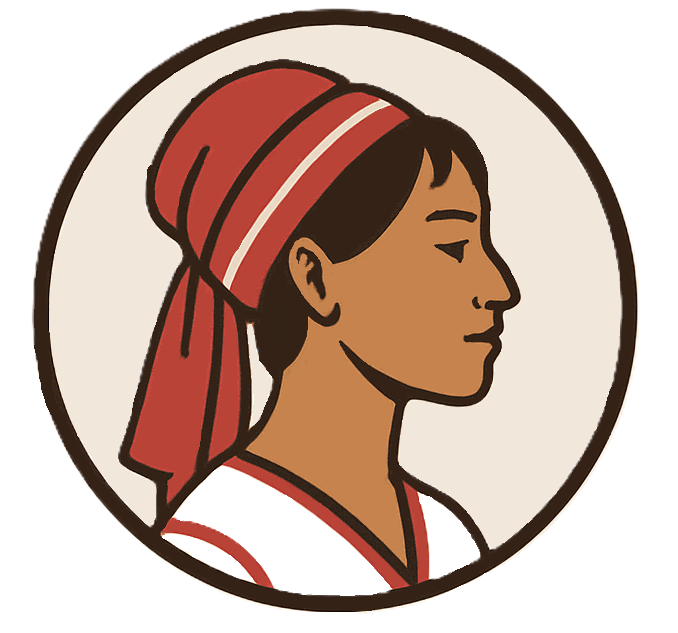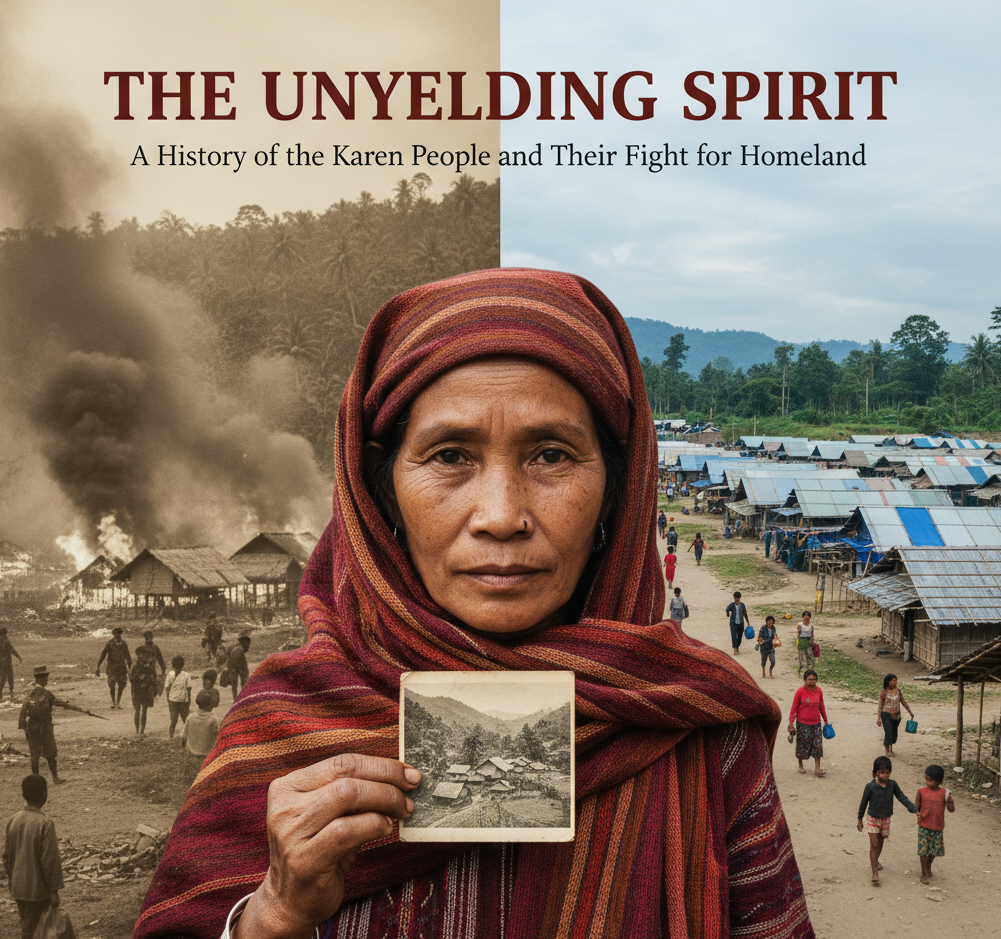Story
The Unyielding Spirit: History of the Karen People and Their Fight for Homeland
The story of the Karen people is one of resilience, a deep connection to their ancestral lands, and a tragic struggle against oppression. Hailing from the mountainous regions bordering Myanmar (Burma) and Thailand, the Karen are a diverse ethnolinguistic group with a rich cultural heritage. Yet, for decades, they have endured immense suffering, particularly at the hands of the Burmese military (Tatmadaw), leading to displacement, conflict, and a persistent yearning for their homeland.
Ancient Roots and Diverse Communities
The Karen are not a monolithic group; they comprise several subgroups, including the Sgaw, Pwo, Bwe, and Paku, each with their own dialects and customs. Their oral traditions speak of a migration from the north, possibly from Tibet or Mongolia, centuries ago, settling in the fertile river valleys and highlands of what is now eastern Myanmar. They developed sophisticated agricultural practices, intricate weaving traditions, and a strong sense of community rooted in their animist beliefs, later influenced by Buddhism and Christianity.
Colonial Era and Promises Unfulfilled
The arrival of the British in the 19th century brought significant changes. Many Karen, particularly those who converted to Christianity, found opportunities within the colonial administration and military. During World War II, the Karen largely sided with the British against the Japanese, while some Burmese nationalists collaborated with the Japanese. This period sowed seeds of distrust and animosity between some Karen and Burmese communities.
At the dawn of Myanmar’s independence in 1948, the Karen hoped for an autonomous state within the Union of Burma, a promise they believed had been implicitly made by the British. However, these aspirations were never fully realized. The new Burmese government, dominated by the Bamar ethnic group, moved towards a more centralized state, sparking fears among ethnic minorities, including the Karen, of cultural and political marginalization.
The Longest Running Civil War
The failure to establish an independent or autonomous Karen state led to the formation of the Karen National Union (KNU) and its armed wing, the Karen National Liberation Army (KNLA), in 1949. This marked the beginning of one of the world’s longest-running civil wars, a conflict that has now spanned over seven decades.
The Tatmadaw’s “Four Cuts” strategy, implemented to cut off support for ethnic armed groups, had a devastating impact on Karen civilians. This brutal tactic involved destroying villages, seizing food supplies, forced relocation, and widespread human rights abuses, including extrajudicial killings, torture, and sexual violence. The goal was to sever the link between the civilian population and the KNLA, but in practice, it terrorized communities and fueled resentment.
Driven from Their Homes: A Refugee Crisis
The ongoing conflict and systematic persecution by the Tatmadaw have forced hundreds of thousands of Karen to flee their homes. Across the border in Thailand, sprawling refugee camps like Mae La, Umpiem Mai, and Nu Po became temporary (and for many, permanent) shelters for generations of displaced Karen. These camps, while providing safety, are often overcrowded and rely heavily on international aid.
Within Myanmar, vast numbers of Karen remain internally displaced, hiding in the jungle, constantly on the move to avoid Tatmadaw patrols. Their lives are characterized by insecurity, limited access to food, healthcare, and education, and the constant threat of violence.
The Fight Continues
Despite decades of hardship, the Karen people’s spirit remains unbroken. The KNU continues to advocate for self-determination and a federal democratic union in Myanmar. Communities in the diaspora work tirelessly to preserve their culture, language, and history, while also raising international awareness about the plight of their people.
The 2021 military coup in Myanmar has further complicated the situation, with renewed violence and a crackdown on dissent. However, it has also brought some ethnic armed organizations, including the KNLA, into closer alignment with the broader pro-democracy movement, creating new dynamics in the struggle against military rule.
A Call for Justice and a Return to Homeland
The history of the Karen people is a poignant reminder of the human cost of conflict and the importance of ethnic rights. Their struggle highlights the urgent need for a peaceful, political solution in Myanmar that respects the aspirations of all its diverse ethnic groups. For the Karen, the dream of returning to a secure and autonomous homeland, where their culture can flourish freely, remains a powerful and enduring hope.

